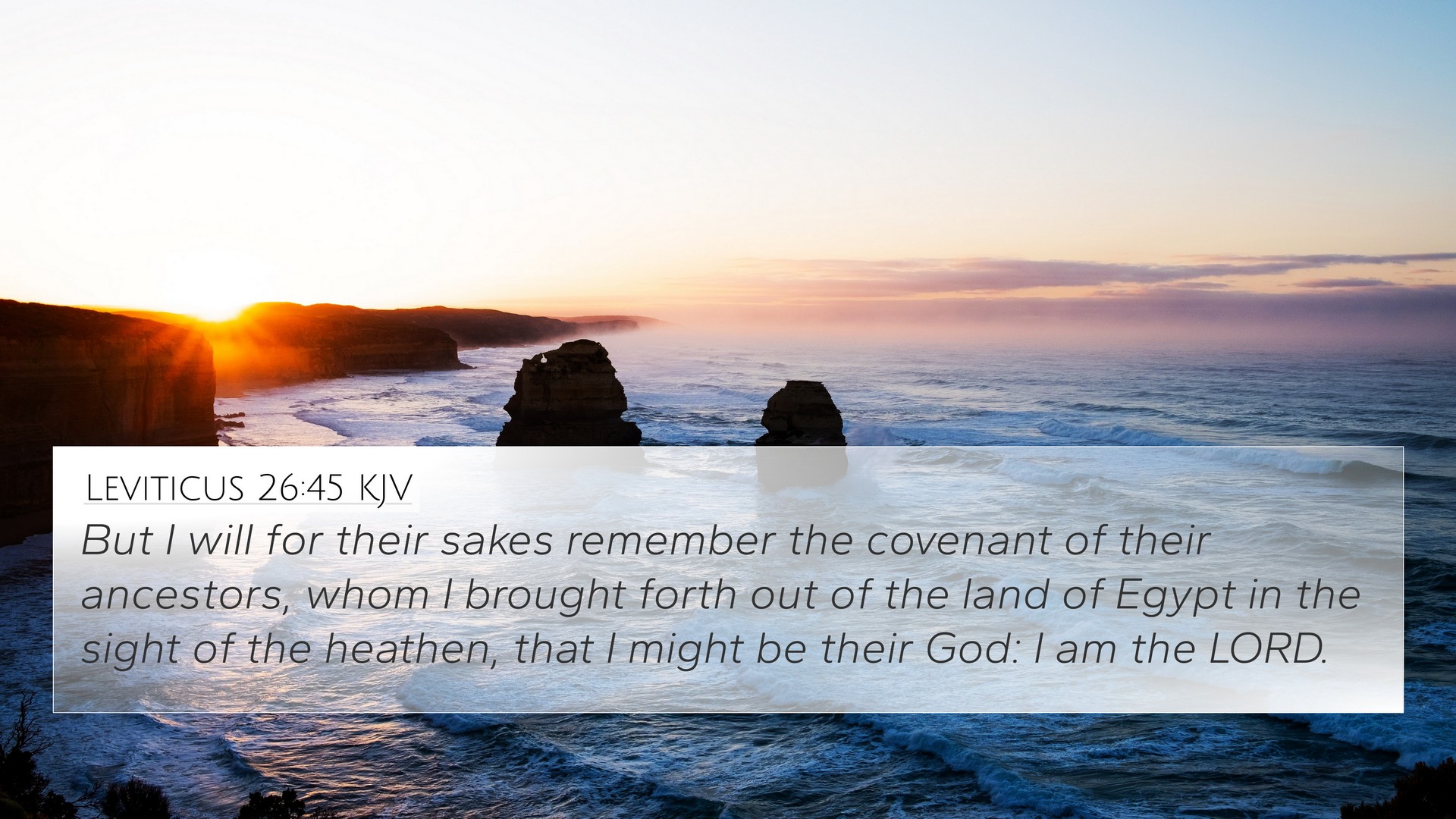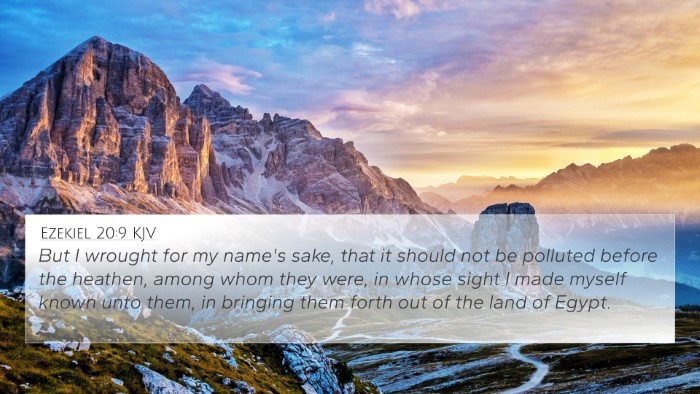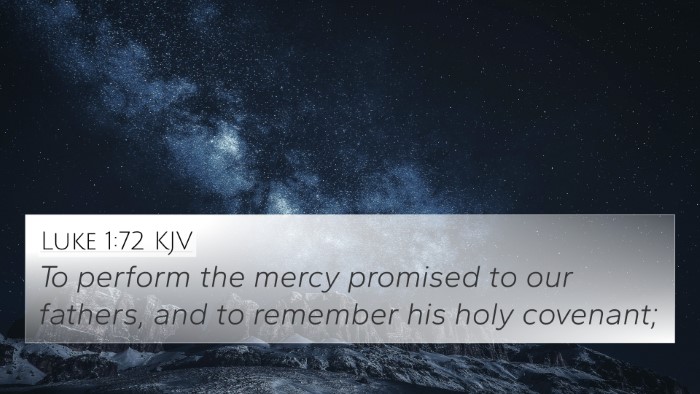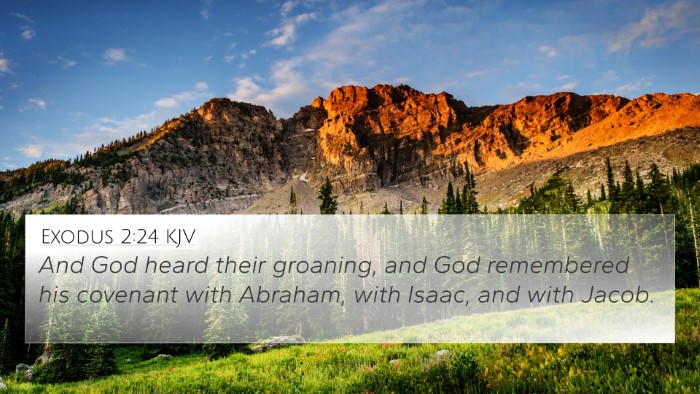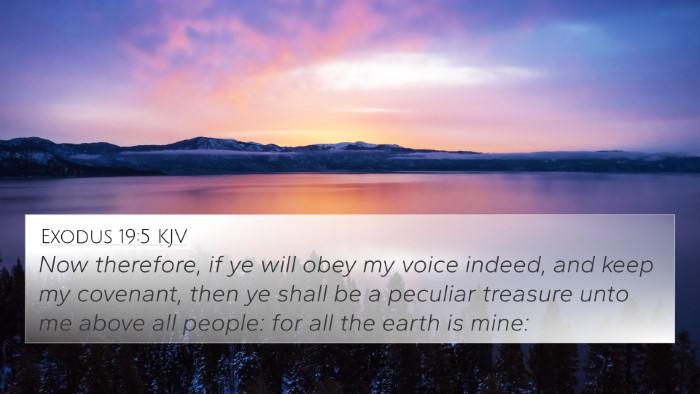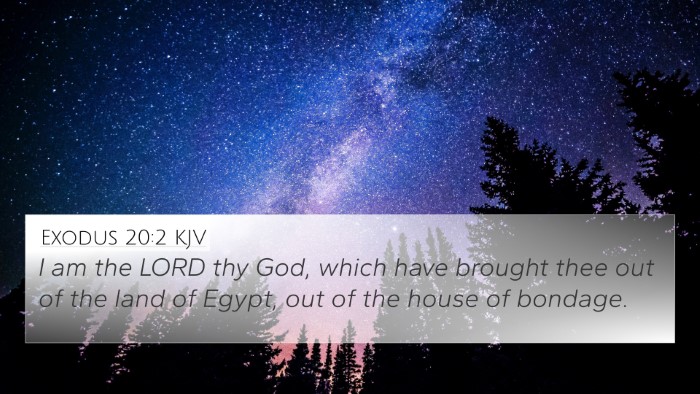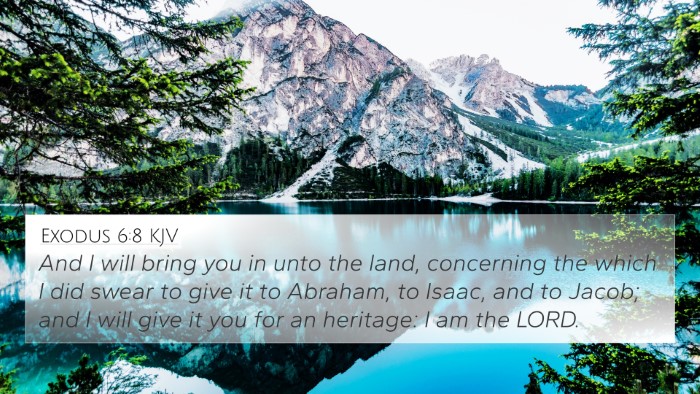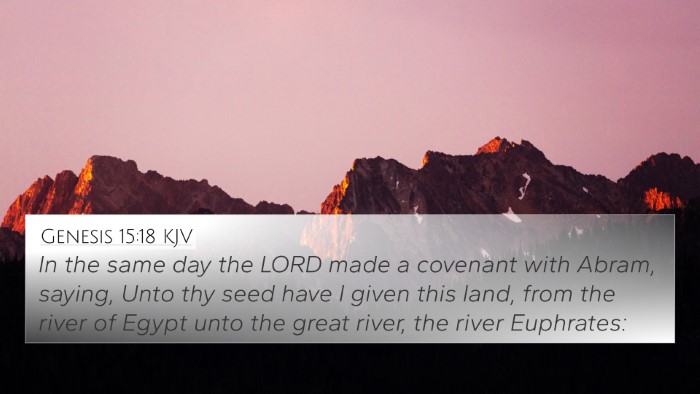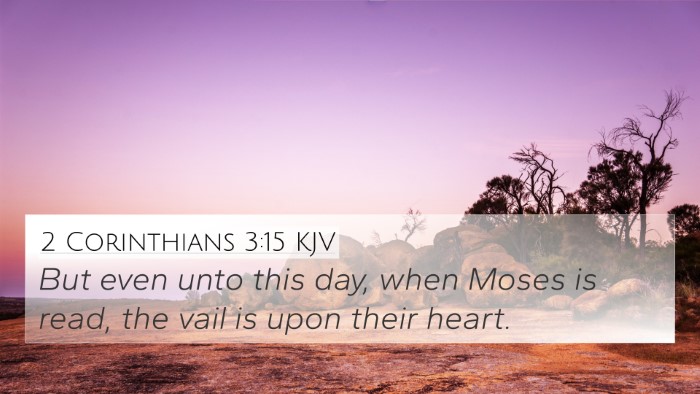Understanding Leviticus 26:45
Leviticus 26:45 states: "But I will remember for them the covenant which I made with their ancestors, whom I brought out of the land of Egypt in the sight of the nations, that I might be their God: I am the LORD." This verse encapsulates God's eternal covenant and His commitment to the Israelites, emphasizing His faithfulness and the importance of remembering historical promises.
Key Themes and Insights
- Covenant Faithfulness: God's promise to remember His covenant reflects the unwavering nature of His commitments.
- Historical Remembrance: This verse urges believers to recall the significant acts of God, particularly His deliverance from Egypt.
- Divine Assurance: The assurance that God will always be their God reinforces the deep relationship between God and His people.
Commentary Insights
Matthew Henry's Commentary
Matthew Henry interprets this verse as a powerful reminder of God’s enduring mercy. He emphasizes that while Israel may stray, God's promises remain intact, showcasing His grace and fidelity to past generations.
Albert Barnes' Commentary
Albert Barnes highlights the importance of God's historical acts as foundations of faith, suggesting that the covenant serves as an anchor for the Israelites’ identity and future. He notes that God's remembrance of the covenant indicates ongoing divine involvement in their lives.
Adam Clarke's Commentary
Adam Clarke points out that the covenant signifies a comprehensive relationship. He asserts that God's promise to remember underscores His role as redeemer and protector, reminding us that divine love transcends generational boundaries.
Bible Verse Cross-References
Leviticus 26:45 connects profoundly with several other scriptures, echoing similar themes of covenant, faithfulness, and divine remembrance:
- Exodus 19:5-6: Establishing Israel as a treasured possession and a kingdom of priests.
- Deuteronomy 7:9: Affirmation of God's faithfulness to His covenant, underscoring that He loves His people.
- Jeremiah 31:33: The promise of a new covenant written on hearts, emphasizing an internal relationship.
- Romans 11:1-2: The apostle Paul asserts that God has not rejected His people, affirming ongoing covenant faithfulness.
- 2 Corinthians 1:20: All of God’s promises find their fulfillment in Christ, linking the old covenant with the new.
- Hebrews 8:6: A commentary on the superior ministry of Jesus as the mediator of a better covenant.
- Psalm 105:8-10: Remembrance of His covenant with the ancestors, reiterating God's faithfulness across generations.
Connections Between Bible Verses
This verse serves as a vital link in understanding the overarching narrative of the Bible, highlighting how historical covenants set the stage for theological developments both in the Old and New Testaments. Each cross-referenced verse reinforces themes of fidelity, love, and divine remembrance.
Applying the Insights
For anyone seeking a deeper understanding of biblical promises, it is essential to utilize tools for cross-referencing. These allow readers to uncover thematic connections, guiding them in studies of scripture. Effective methods include:
- Using a Bible Concordance to find related verses and themes.
- Implementing a Cross-reference Bible study approach to see links between verses.
- Engaging in a Comparative Bible verse analysis to grasp the contexts and fulfillments of covenants.
Conclusion
In summary, Leviticus 26:45 stands as a testament to God's faithfulness and enduring love for His people. Through this verse and its cross-references, believers find encouragement and assurance in the continuity of God's promises throughout the Scriptures. Understanding these connections highlights the richness of God's word and its relevance to our spiritual journeys today.
